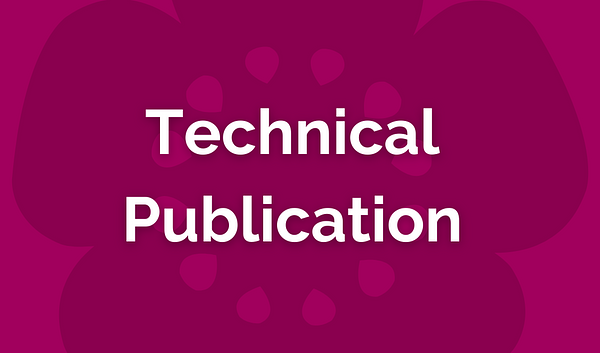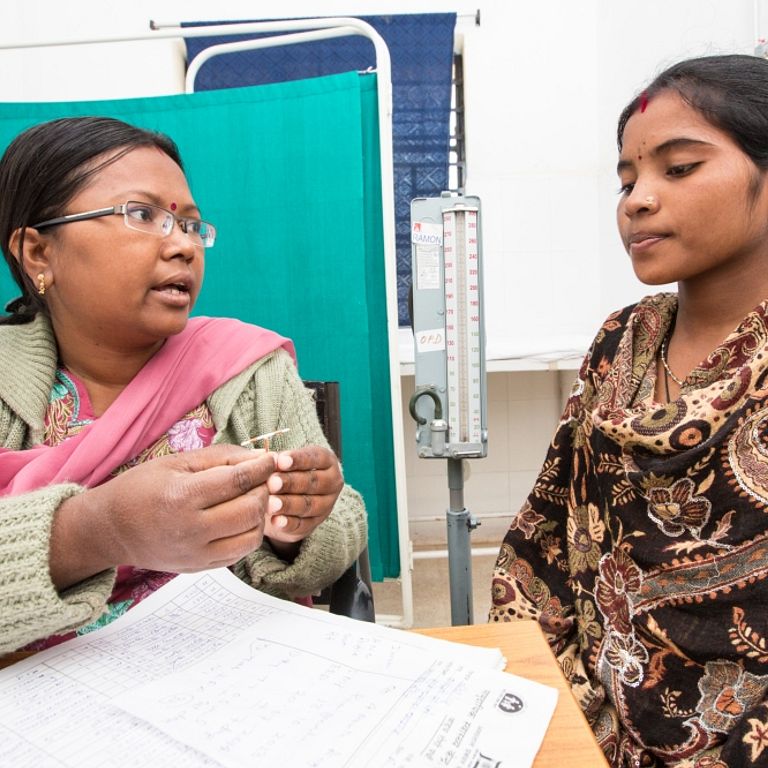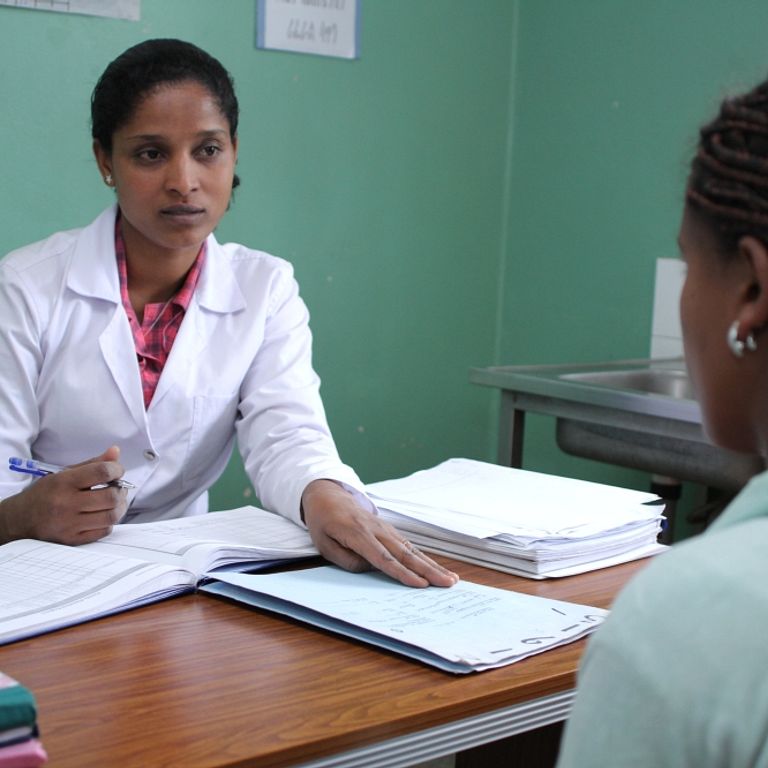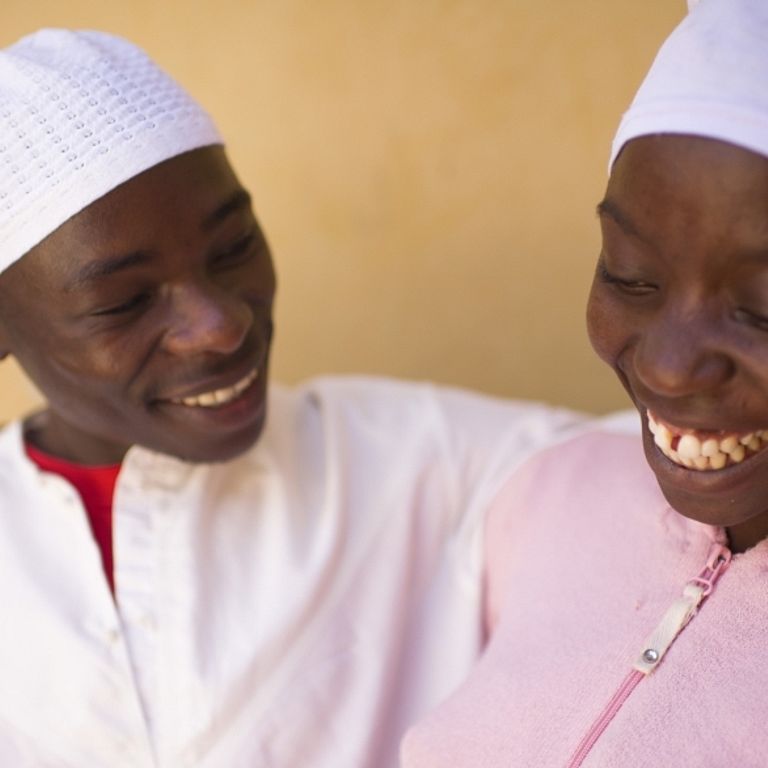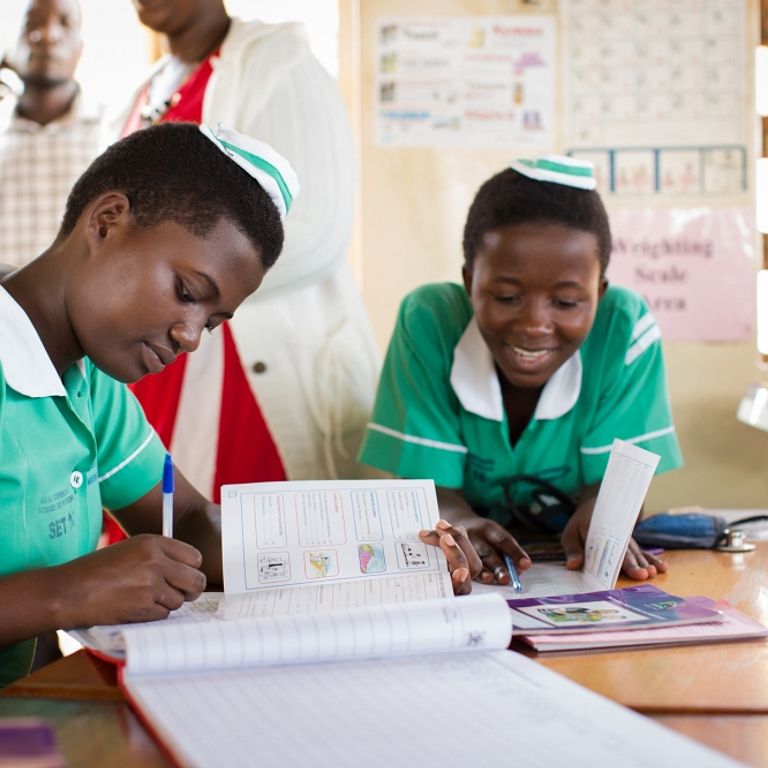Burundians Responding Against Violence and Inequality (BRAVI)

According to UNICEF, nearly a quarter (23%) of Burundian women between the ages of 15 and 49 report experiencing sexual violence in their lifetimes. In 2016, the World Health Organization estimated that there are 84,000 people living with HIV in Burundi, including 39,000 women. Research by UNAIDS indicates this rate of HIV among women in Burundi is linked closely to SGBV.
EngenderHealth partnered with the Ministry of Public Health and the Fight Against AIDS through BRAVI to improve the prevention of and response to SGBV, in part by providing integrated family planning, HIV, and SGBV services. We supported governmental and civil society organizations in establishing a systemic response to SGBV, especially the health sector response, by developing criteria and curricula to train healthcare workers to screen for SGBV, provide initial treatment for survivors, and collect related forensic evidence.

BRAVI supported the the ministry in integrating SGBV into the National Strategy for Maternal, Reproductive, Newborn, Child, and Adolescent Health, 2019–2023. This updated strategy included training healthcare providers to deliver services for SGBV survivors, including children and adolescents; providing coaching and mentoring guidance; standardizing SGBV data collection tools; creating a register to record SGBV cases; and identifying necessary resources for SGBV service kits within the national HIV supply chain system. In collaboration with the government and other local partners, BRAVI trained personnel, established consulting centers, improved survivor tracking systems, and integrated SGBV care into existing services to ensure sustainability. BRAVI fostered supportive enabling environment for SGBV survivors, in part by working to address gender inequality and instill positive gender norms.
The program supported SGBV training of 293 healthcare providers and 216 community health workers. As a result of service integration efforts, supported providers screened 35,100 family planning clients across 39 health facilities, thereby identifying 503 SGBV survivors. Through BRAVI’s community workshops, we engaged men to confront, challenge, and change harmful gender stereotypes and 554 of these male participants volunteered for HIV testing. By integrating SGBV and HIV services in the latter half of the program, the number of sexual violence survivors who received medication to reduce the risk of HIV infection more than doubled.
We have continued this work in the GIR’ITEKA program with our local partner SWAA-Burundi.
